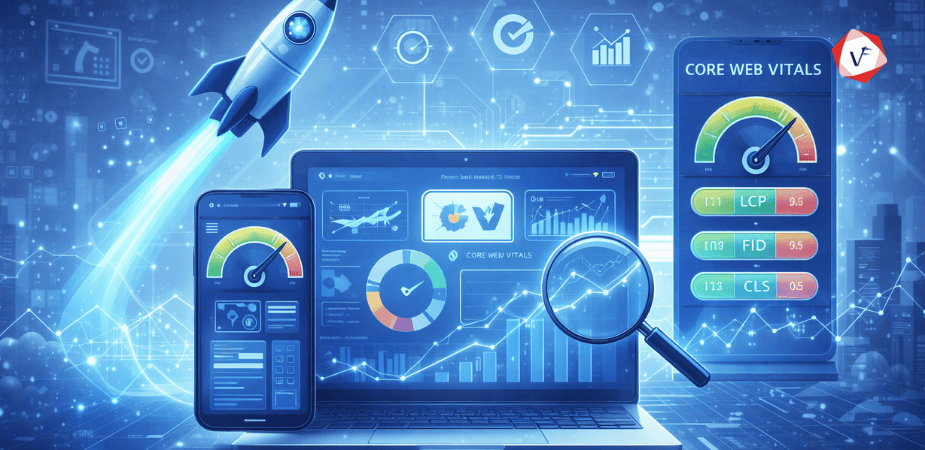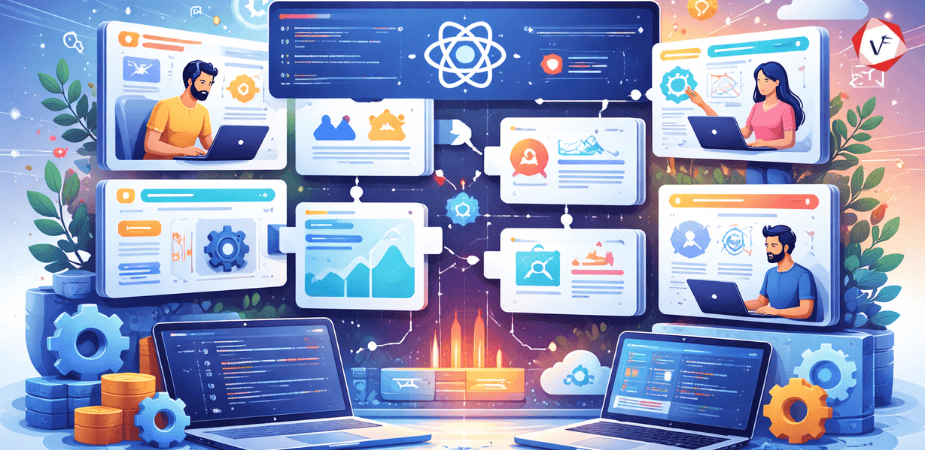- October 27, 2025 6:53 am
- by Kevin
- October 27, 2025 6:53 am
- by Ajanth

Key Takeaway: Agentic workflows are AI-driven processes that execute tasks dynamically with minimal human intervention. The market is projected to grow from $7.28 billion in 2025 to $41.32 billion by 2030, with early adopters seeing up to 50% efficiency improvements in operations.
Artificial intelligence is transforming how businesses operate, and agentic workflows represent one of the most significant advances in business automation. These intelligent systems are reshaping enterprise operations by enabling autonomous task execution with minimal human intervention.
An agentic workflow is an AI-driven process where the sequence of tasks are dynamically executed with minimal human intervention to achieve a particular goal. As organizations seek more efficient ways to handle complex business processes, agentic workflows offer a sophisticated approach that combines autonomous decision-making with intelligent task orchestration.
The rapid adoption of these systems is evident in market projections, with the market expected to grow from $7.28 billion in 2025 to $41.32 billion by 2030. This transformative technology represents a fundamental shift from traditional automation approaches, promising unprecedented efficiency gains across various industries.
Agentic workflows fundamentally differ from conventional automation systems through their autonomous capabilities and intelligent decision-making processes. Unlike traditional workflows, which often require humans to gather information, verify details, or resolve issues, agentic workflows leverage AI agents to perceive their environment and make informed decisions independently.
These systems incorporate sophisticated AI models equipped with memory, planning, reasoning, and tool-use capabilities that enable them to handle complex, multi-step processes without constant human oversight. The architecture of agentic workflows centers around intelligent agents that can analyze situations, make decisions, and execute tasks based on predefined objectives and real-time data.
These AI-powered systems go beyond simple task automation by incorporating contextual understanding and adaptive responses to changing circumstances. The agents within these workflows can communicate with each other, share information, and coordinate their actions to achieve common goals, creating a collaborative environment that mirrors human team dynamics but operates at machine speed and scale.
What sets agentic workflows apart is their ability to handle unstructured processes that traditional automation cannot address effectively. Agentic automation can now optimize complex, unstructured processes that traditional rules-based automation can't address by itself. This capability extends automation's reach far beyond repetitive, rules-based tasks into areas requiring nuanced judgment and contextual decision-making.
The foundation of agentic workflows rests on several interconnected technologies that work together to create intelligent, autonomous systems. Machine learning algorithms form the backbone of these systems, enabling AI models to learn from data over time and continuously improve their performance. These allow AI models to adapt and optimize processes, so the workflow can improve continually without human help.
Natural language processing (NLP) capabilities allow these systems to understand and generate human-like communication, making them effective at interfacing with both human users and other AI systems. The integration of large language models provides these workflows with sophisticated reasoning abilities, enabling them to process complex information and make decisions based on contextual understanding rather than simple rule-following.
Memory systems within agentic workflows allow agents to retain information from previous interactions and use that knowledge to inform future decisions. This persistent memory capability enables the workflows to build upon past experiences and continuously refine their approaches to similar situations.
Planning algorithms help agents break down complex objectives into manageable sub-tasks and determine the most efficient sequence of actions to achieve desired outcomes. This strategic capability ensures that workflows can handle sophisticated multi-step processes effectively.
Tool integration capabilities allow agentic workflows to interact with external systems, databases, and applications, expanding their operational scope beyond isolated tasks. These workflows can access real-time information, update records, trigger notifications, and perform various actions across multiple platforms and systems.
Agentic workflows are finding applications across numerous business functions, demonstrating their versatility and effectiveness in various operational contexts. In customer service operations, these systems can handle complex inquiries by analyzing customer history, accessing relevant knowledge bases, and providing personalized responses while escalating only the most complex issues to human agents.
Agentic workflows help automate debugging, generate code snippets, and manage project timelines. Agents can collaborate with developers, suggest improvements, and even run tests, accelerating the software delivery lifecycle. This application demonstrates how agentic workflows can enhance creative and technical processes by providing intelligent assistance and automation support.
Agentic workflows streamline processes such as loan applications, fraud detection, and compliance monitoring. These systems can analyze financial data, assess risk factors, and make preliminary decisions while maintaining detailed audit trails for regulatory compliance. The ability to process large volumes of financial information quickly and accurately makes these workflows invaluable for institutions managing complex financial operations.
Supply chains benefit significantly from agentic workflows through intelligent inventory management, demand forecasting, and supplier coordination. These systems can analyze market trends, monitor supply chain disruptions, and automatically adjust procurement strategies to maintain optimal inventory levels while minimizing costs.
HR departments utilize agentic workflows for candidate screening, employee onboarding, and performance management. These systems can analyze resumes, conduct initial assessments, and coordinate interview scheduling while ensuring compliance with employment regulations and company policies.
The implementation of agentic workflows delivers substantial benefits across multiple dimensions of business operations. Agentic workflows automate repetitive tasks, reducing human effort, minimizing errors, and increasing operational speed. This automation extends beyond simple task completion to include intelligent decision-making and problem-solving capabilities that traditionally required human intervention.
Cost reduction represents one of the most immediate and measurable benefits of agentic workflows. The benefits can often be seen immediately—in the case of Petrobras, returning $120 million in tax savings in just three weeks. Such dramatic cost savings demonstrate the potential for rapid return on investment when implementing these systems in appropriate business contexts.
Operational efficiency gains through agentic workflows are substantial and multifaceted. Early enterprise deployments of AI agents have yielded up to 50 percent efficiency improvements in functions like customer service, sales, and HR operations. These improvements stem not only from faster task completion but also from the elimination of bottlenecks and delays typically associated with human-dependent processes.
Scalability advantages of agentic workflows allow businesses to handle increasing workloads without proportional increases in human resources. These systems can process multiple tasks simultaneously and adapt to varying demand levels without the constraints of human capacity limitations. The 24/7 operational capability ensures continuous processing and responsiveness, particularly valuable for global operations spanning multiple time zones.
Quality consistency represents another significant advantage, as agentic workflows eliminate human error and variability in task execution. These systems apply consistent standards and procedures across all operations, ensuring reliable outcomes and reducing the need for quality control interventions.
Despite their significant benefits, implementing agentic workflows presents several challenges that organizations must carefully consider. Technical complexity represents a primary hurdle, as these systems require sophisticated infrastructure and expertise to design, deploy, and maintain effectively. Organizations must invest in appropriate technological foundations and develop internal capabilities to support these advanced automation systems.
Data quality and availability concerns affect the performance of agentic workflows, as these systems depend on accurate, comprehensive data to make informed decisions. Organizations must ensure robust data management practices and maintain high-quality datasets to support optimal workflow performance.
Integration challenges arise when connecting agentic workflows with existing business systems and processes. Legacy systems may require significant modifications or intermediate solutions to communicate effectively with new AI-driven workflows. This integration complexity can extend implementation timelines and increase initial costs.
Change management issues emerge as employees adapt to working alongside intelligent automation systems. Organizations must address concerns about job displacement, provide appropriate training, and redesign roles to complement rather than compete with agentic workflows. Clear communication about the benefits and limitations of these systems helps facilitate smoother transitions.
Governance and compliance considerations become more complex with autonomous decision-making systems. Organizations must establish clear accountability frameworks, audit trails, and oversight mechanisms to ensure agentic workflows operate within acceptable parameters and comply with relevant regulations.
The future of agentic workflows appears promising, with significant growth and advancement expected in coming years. By 2028, approximately 30% of business applications are expected to use agentic AI, representing a dramatic increase from current adoption levels. This growth trajectory indicates widespread recognition of the value these systems provide across various industries.
"So yes, the answer is that 2025 is going to be the year of the agent." This assessment from industry experts suggests that agentic workflows will become increasingly mainstream and sophisticated in the near term. As organizations gain experience with these systems and technology continues to advance, we can expect more robust and capable implementations.
The integration of advanced AI capabilities will continue to enhance agentic workflows, with improvements in reasoning abilities, contextual understanding, and autonomous decision-making. These enhancements will expand the range of tasks and processes that can be effectively automated while improving the quality and reliability of outcomes.
Industry-specific adaptations of agentic workflows will likely emerge, with specialized solutions tailored to the unique requirements of different sectors. This specialization will enable more effective implementation and greater value realization across diverse business environments.
Agentic workflows represent a transformative approach to business automation that extends far beyond traditional process automation. These intelligent systems combine autonomous decision-making, adaptive learning, and sophisticated task orchestration to deliver unprecedented efficiency and capability improvements.
As organizations continue to seek competitive advantages through technological innovation, agentic workflows offer a compelling solution for streamlining complex operations while maintaining quality and reliability. The substantial market growth projections and early implementation successes demonstrate the significant potential of these systems.
Ready to Transform Your Business with Agentic Workflows?
For organizations looking to implement agentic workflows and harness the power of intelligent automation,Vofox's AI/ML development services provide expert guidance and comprehensive solutions to successfully navigate this transformation. Contact us today to learn more about how agentic workflows can revolutionize your business operations.
Guaranteed Response within One Business Day!
What is Infrastructure as Code (IaC)?

Front-End Performance in 2026: What Core Web Vitals Actually Mean for Your Site

What is FinOps?

Micro-Frontends: Breaking Down Monolithic React Applications
.png)
Zero-Trust Security Models for SaaS: What You Need to Know